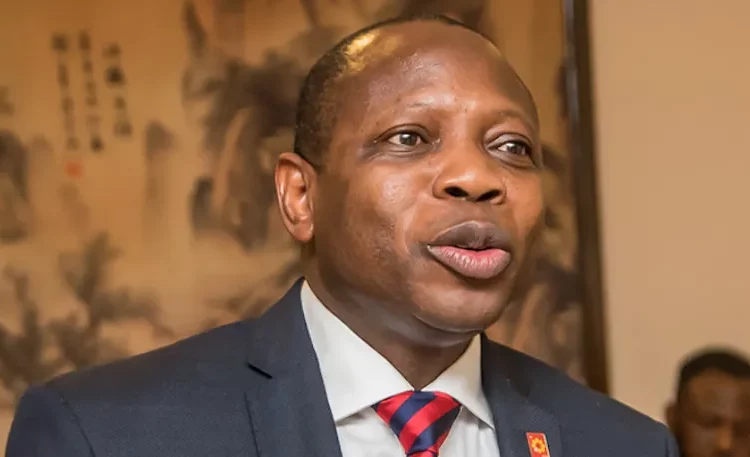No doubt, the African insurance market has become the toast of international investors in recent times. Nigeria, Ghana, Kenya, among others, have become beneficiaries of these investments, which has, in turn, increased capacities of the companies they invested in.
And with low risk retention of most Africa countries, meaning that, most of the risk businesses are ceded abroad, there is a call to increase financial and technical capacities of African underwriters so that they have have huge risk appetite. This will translate to more premium income for the industry in the long run.
At the just concluded 48th AIO conference in Nairobi, Kenya, at the weekend, experts have charged insurance companies across Africa to increase their level of risk retention locally to grow and develop African insurance market profitably.
The experts, who spoke at the conference in Nairobi, Kenya, stated that, insurers on the continent must increase their capacity and appetite to wrestle substantial part of the risks ceded abroad annually.
They also believe there are opportunities for insurance growth on the continent as investment shifts more towards African countries of which insurance sectors across countries will benefit from.
Kenyan president, Uhuru Kenyatta, at the 50th anniversary of AIO, encouraged insurers and reinsurers operation out of Africa to increase their retention capacity and through increased investments.
“With increased investments, the continent, I am sure, will also encourage and ensure that we meet our ESG goal as envisioned in the theme of conference, ‘Insurance and Climate Change: Harnessing the Opportunities for Growth in Africa’.,” he stressed.
Speaking on the theme of the conference, Kenyatta, who was represented at the event by the chief administrative secretary, the National Treasury and Planning, Kenya, Hon.
Eric Simiyu Wafukho, said insurance industry has a critical role to play in helping companies and nations manage, measure and reduce the impact of climate change.
To him, “We therefore cannot continue with business as usual in the face of increasing frequency and scale of risks caused by climate change, we must adjust our business models to better support Environmental, Social and Governance(ESG) issues.”
Stressing that Africa is one of the world’s most attractive region for investment in the insurance sector, he added that, steady economic growth in most countries combined with a largely underdeveloped insurance sector have positioned the continent to the second fastest growing region for insurance globally after Latin America.
“Prior to the impact of Covid-19, the insurance market was expected to grow compound annual growth rates(CAGR) of 7 per cent per annum between 2020 and 2025, nearly as fast as North America, over three times than that of Europe and better than Asia’s 6 per cent,” he pointed out.
Earlier, the president of AIO, Mr. Tope Smart believes, growth opportunities in the African continent remain high, largely driven by a young and growing population with increasing utilisation of technology.
Despite the additional pressures of unrelenting regulatory and insurance accounting changes, and the huge costs associated with the changes, he noted that, there are also some positive developments and opportunities for growth.
According to him, “the younger generation is looking for new ways to connect and protect, bringing affordability and access to the continent. These market conditions and dynamics are likely to continue to give rise to Insurtechs who, through technological innovation, are able to tackle consumer awareness and resistance and address inefficiencies within the financial system for product development, distribution, and settlement.”
Smart, who is also the group managing director/CEO, NEM Insurance Plc, stated that, there is a vital responsibility on the shoulders of the AIO to lead the action towards a synergised African insurance industry, working towards standardisation and harmonisation within the African insurance industry.
“We have the lessons of the past to guide us and there is no better time to start than now. The Covid-19 pandemic caught many of us unprepared with regards to digitalisation and innovation; we need to be more proactive and move away from our old ways which are no longer relevant and move towards insurance which people can trust, insurance which is tailored towards the needs of customers, insurance that is affordable, insurance that is accessible and relevant to the problems of today,” he stressed.
These market conditions and dynamics, he said, are likely to continue to give rise to Insurtechs who, through technological innovation, are able to tackle consumer awareness and resistance and address inefficiencies within the financial system for product development, distribution, and settlement.
“The insurance sector can play a crucial role in financial and economic development. By reducing uncertainty and limiting the adverse effects of large losses, the sector can encourage new investments, innovation, and competition,” he said.
He said insurance industry in Africa is undergoing a period of significant change and disruption, stressing that, it is now evident that technology is playing a major role in this, with new companies and business models emerging that are challenging the existing ones.
Smart noted that the technological advancements in information management tools and mobility have paved the way for a new era in the African insurance industry.
“Consumer behaviour is ever changing, and this constantly puts pressure on insurers to adapt and innovate if they are to stay relevant.
Nonetheless, the future looks bright for the African insurance industry, and it will be fascinating to see how it develops over the coming years.
“One way, amongst many others, in which technology is shaking up the status-quo is through the use of Blockchain. This distributed ledger technology has the potential to provide a more robust and efficient infrastructure for the industry, improving transparency and reducing costs,” he added.
He maintained that there is an existing gap between academia and the professional world which needs to be bridged and there are many questions regarding education and training in the African insurance industry, which need to be addressed.





